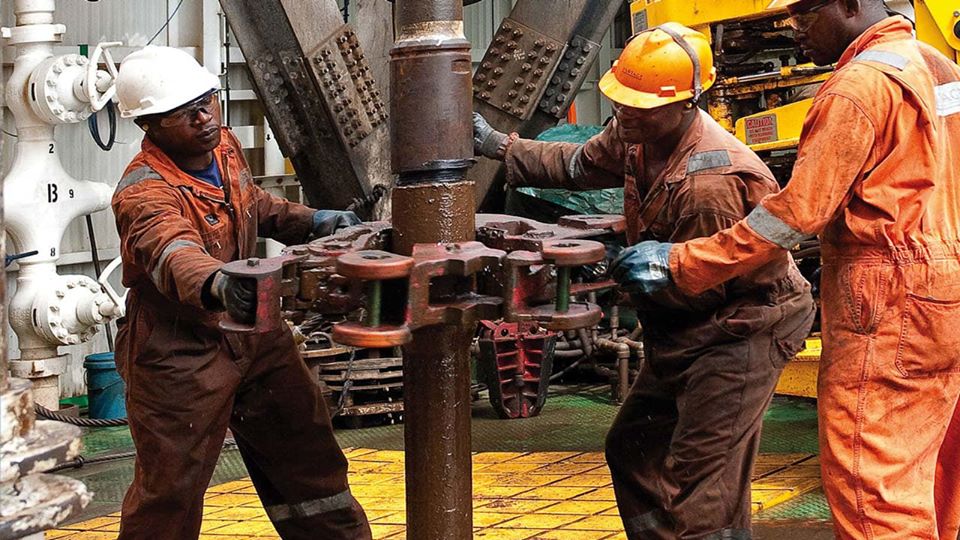There are no products in your shopping cart.
| 0 Items | £0.00 |


NIGERIA'S petroleum production is facing the prospect of a total shutdown as operators have been forced to reduce the number of crude oil rigs as global demands keeps falling as the economic impact of the coronavirus pandemic bites hard.
Following the global economic shutdown as a result of the spread of the Ciovid-19 virus, global demand for crude oil is at an all time low, forcing prices down. Nigeria is particularly vulnerable as 95% of government revenue comes from petroleum product receipts and with no one purchasing crude at the moment, oil companies are having to scale back their operations.
As of April 16, the number of active oil rigs in Nigeria fell by 23.8% to 16 from 21 a month earlier and this trend looks set to continue. According to analyst Baker Hughes and the Organisation of Petroleum Exporting Countries (Opec), Nigeria recorded the second biggest decline in the number of rigs among its peers in April, after Venezuela, whose rig count plunged by 11 to 14.
In Iraq, the rig count dropped by four to 70 and it fell by three in the United Arab Emirates to 65, while in Gabon, the number reduced by two to six. However, Algeria’s active rigs rose by eight to 42, while those of Kuwait and Saudi Arabia rose by four and two to 54 and 116 respectively.
Rig count is largely a reflection of the level of exploration, development and production activities occurring in the oil and gas sector. The slump in oil prices caused by the coronavirus pandemic has forced many companies, including international oil firms operating in Nigeria to slash their capital budgets and suspend some projects.
Dr Diran Fawibe, the chief executive of International Energy Services, said: “The oil service sector will be badly affected because if these projects are suspended or cancelled, there is no way the oil companies will make use of service companies. Already, there are some projects being undertaken by international oil companies that had been suspended.”
Alex Tarka, the president of the Nigerian Association of Petroleum Explorationists, added: “Our members are feeling the impact because quite a reasonable number of them depend on these drilling operations to sustain their businesses. When you take out exploration, a reasonable number of our members will be impacted.”
Seplat Petroleum Development Company for instance said in March that it was looking to cut costs by at least 30% to counter a crash in crude oil prices. Its chief financial officer, Roger Brown, said the company’s cuts would see its drilling plans reduced to three wells from the 15 to 20 it had planned.
Ebiaho Emafo, the chief executive of Eroton Exploration & Production Company, said in April that the firm had suspended a planned $1.5bn, 50-well campaign to more than double output to 100,000 barrels per day by 2021. Royal Dutch Shell, on the other hand, had said it would reduce capital spending to $20bn for 2020 from its previously planned $25bn, while ExxonMobil cut its budget by $10bn to $23bn.
Total said in March that it would cut its capital spending by around 20% to below $15bn, while Eni said it would reduce its 2020 capital expenditures by €2bn, or 25%. Nigeria's 2020 budget was predicated on selling 2.1m barrels of oil a day at a cost of $57 a barrel but with this collapse, the government will be lucky to generate half of the $28.8bn earmarked in the budget.